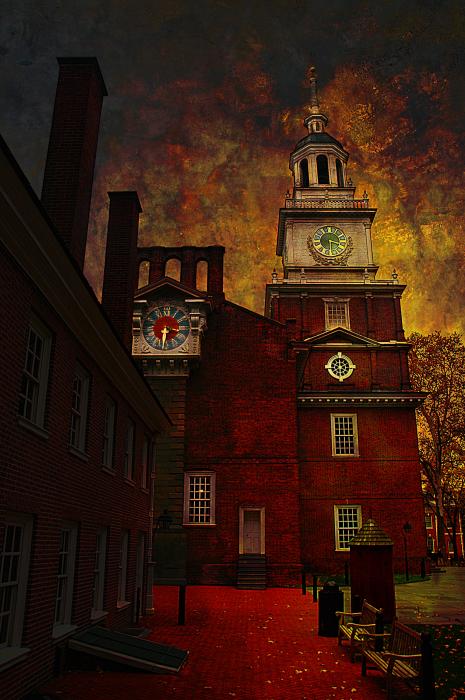
The Founders on Limited Government
The Founders feared an overly powerful government. Governments govern … which means they exercise power. George Washington may have said it best, “Government is not reason: It is not eloquence, it is Force, like fire it is a dangerous servant and a fearful master.†James Madison chimed in by adding, “The essence of Government is power; and power, lodged as it must be in human hands, will ever be liable to abuse.â€
To prevent the government from becoming overly powerful, the Founders used a number of techniques:
- Enumerated powers
- Three branches of government with power balanced between them
- Each branch was given checks on the exercise of power by the other branches
- A federal system with the states acting as a check on the national system
- Different terms of office for elected and appointed officials
- Limited taxing authority (Superseded by the 16th Amendment)
 The Founders weren’t paranoid; they came by their fear power through personal experience and their study of history. They believed governments oppress and liberty depended on decentralized government authority and potent restraints on the abuse of power. Here is what the Founders said about limited government in their own words.
The Founders weren’t paranoid; they came by their fear power through personal experience and their study of history. They believed governments oppress and liberty depended on decentralized government authority and potent restraints on the abuse of power. Here is what the Founders said about limited government in their own words.
It is to be remembered that the general government is not to be charged with the whole power of making and administering laws. Its jurisdiction is limited to certain enumerated objects — James Madison
The powers delegated by the proposed Constitution to the federal government are few and defined. Those which are to remain in the State governments are numerous and indefinite. The former will be exercised principally on external objects, as war, peace, negotiation, and foreign commerce; with which last the power of taxation will, for the most part, be connected. The powers reserved to the several states will extend to all the objects which, in the ordinary course of affairs, concern the lives, liberties, and properties of the people, and the internal order, improvement and prosperity of the State. — James Madison, Federalist 45
With respect to the words general welfare, I have always regarded them as qualified by the details of power connected with them. To take them in a literal and unlimited sense would be a metamorphosis of the Constitution … [that] was not contemplated by the creators. — James Madison
The plain import of the clause is that congress shall have all the incidental and instrumental powers, necessary and proper to carry into execution all the express powers. It neither enlarges any power specifically granted; nor is it a grant of any new power to congress. -—Joseph Story
The powers of government should be so divided and balanced among several bodies of magistracy, as that no one could transcend their legal limits, without being effectually checked and restrained by the others. -— Thomas Jefferson
If Congress can do whatever in their discretion can be done by money, and will promote the General Welfare, the Government is no longer a limited one. -— James Madison
In republican government, the legislative authority necessarily predominates. The remedy for this inconveniency is to divide the legislature into different branches; and to render them, by different modes of election and different principles of action, as little connected with each other as the nature of their common functions and their common dependence on the society will admit. -— James Madison
James D. Best is the author of Tempest at Dawn, a novel about the 1787 Constitutional Convention. Look for his forthcoming book, Principled Action, Lessons from the Origins of the American Republic.
 The posts are coming!
The posts are coming!

1 comment
Great post! Excellent refutation of the idiot Obama’s latest twaddle about the evils of limited government.
[Reply]
Leave a Comment